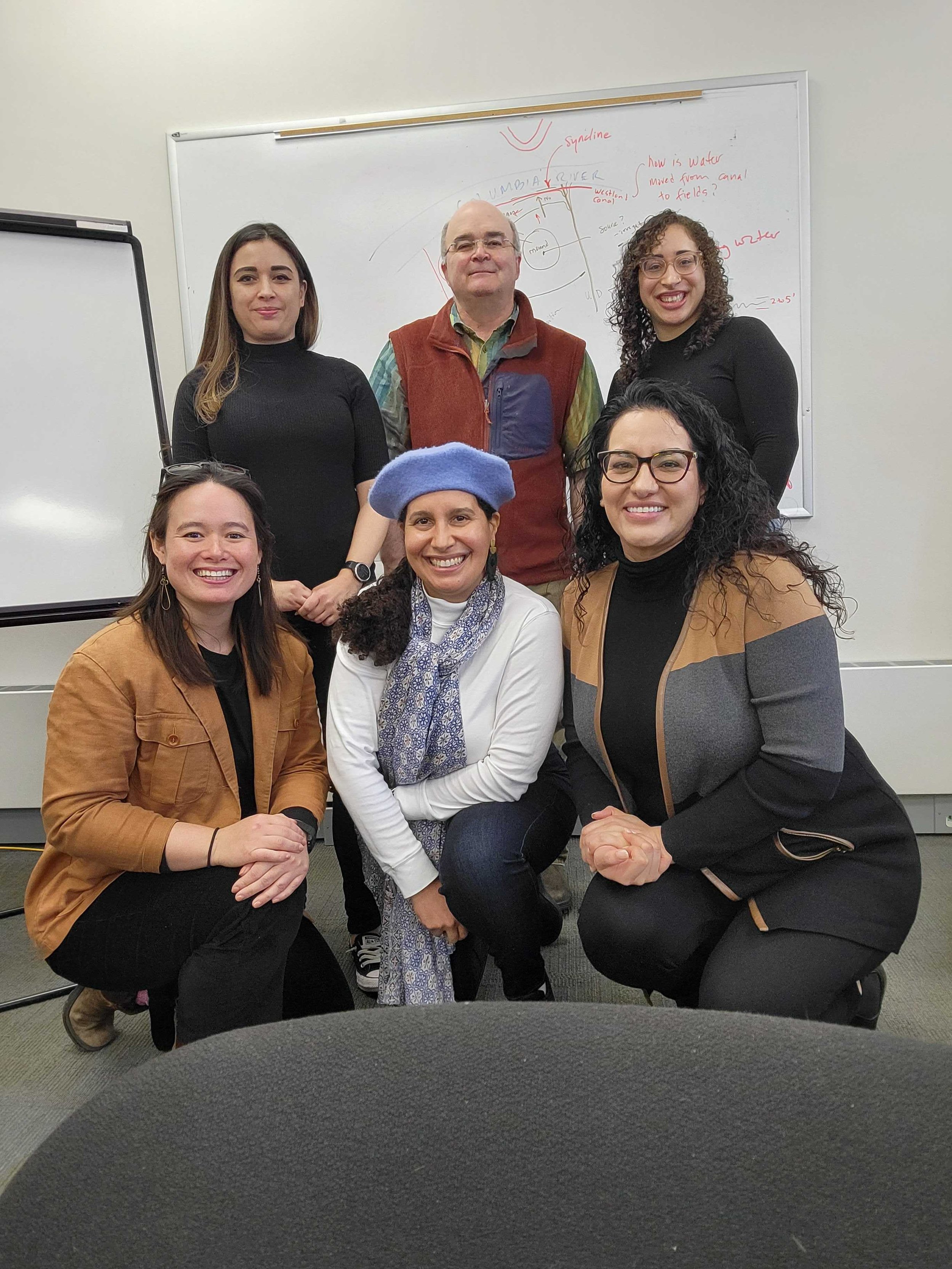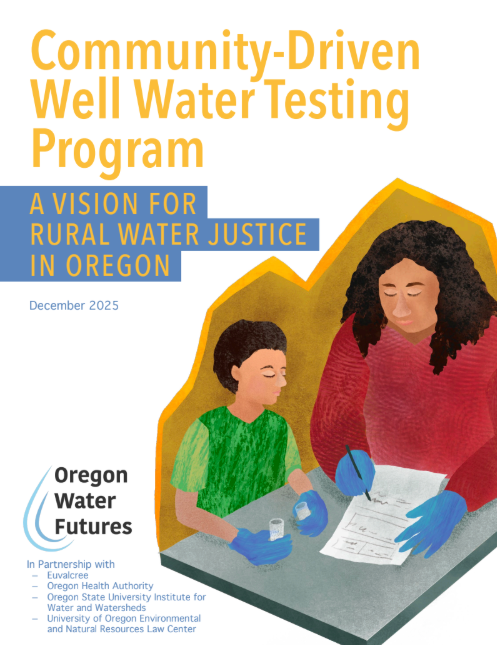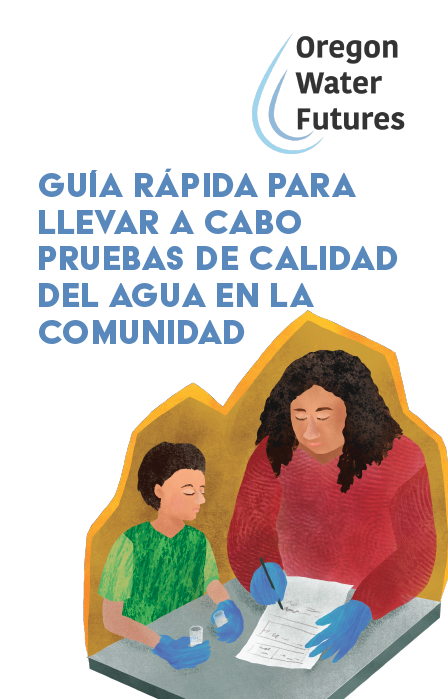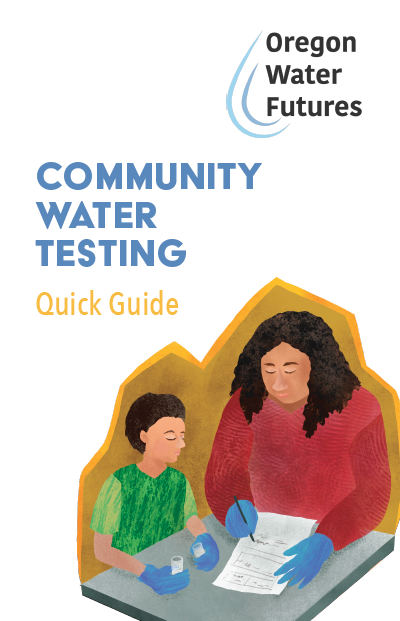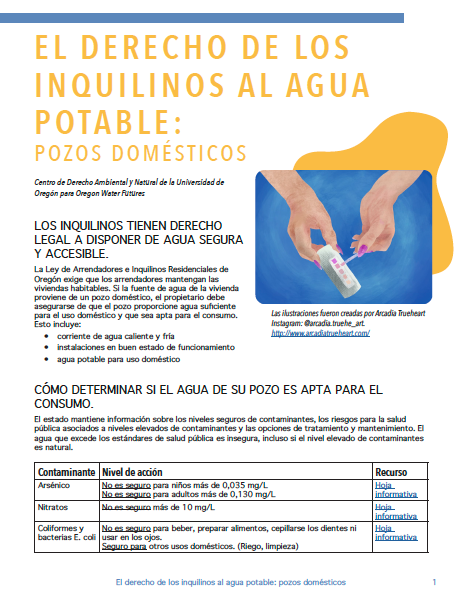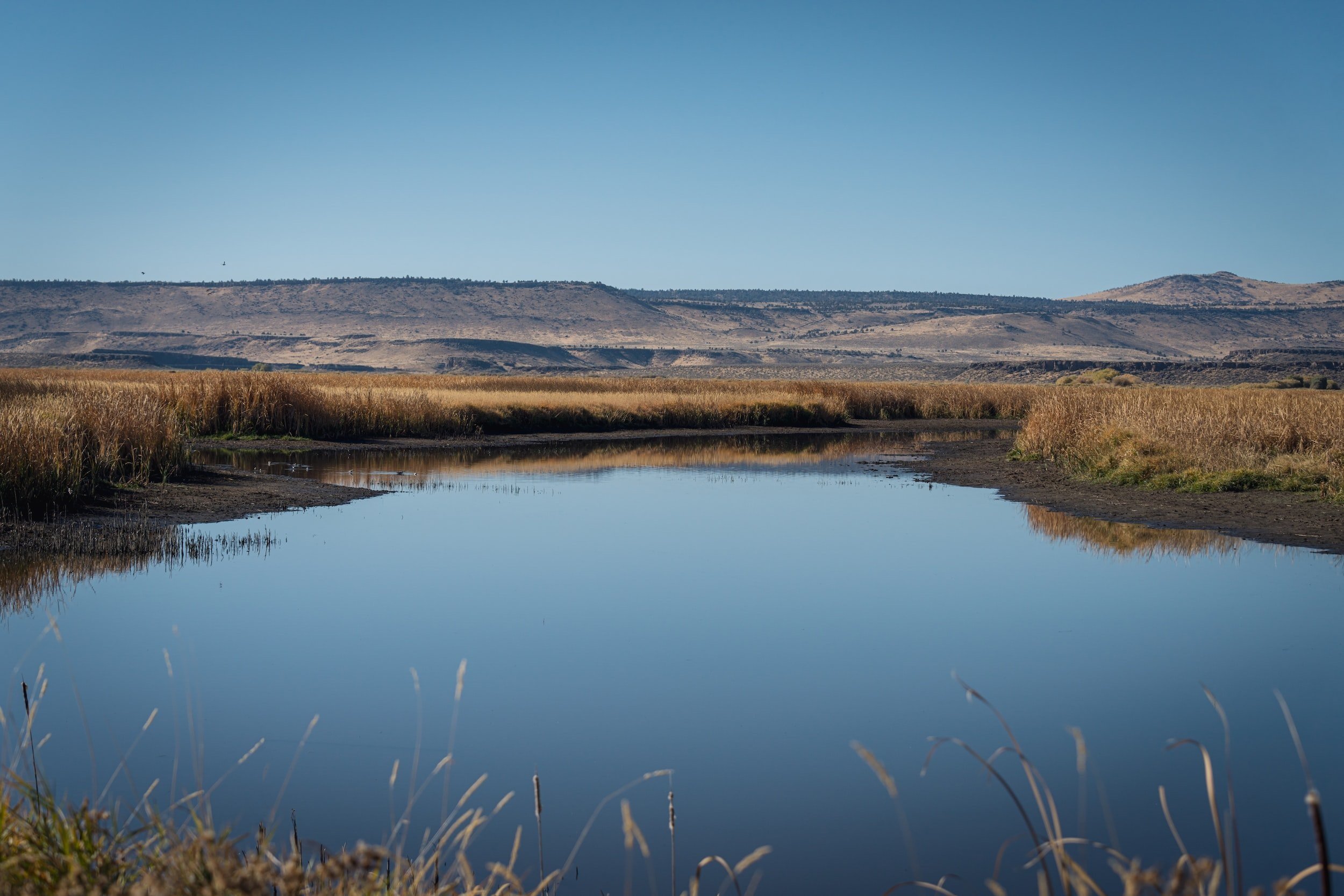
Water Justice in Rural Communities
Community-driven
well water testing
What is groundwater?
Groundwater
40 years of study and experience wrapped up in less than five minutes! Narrated by Todd Jarvis, Director, Oregon State University Institute for Water and Watersheds.
¿Qué es el agua subterránea?
El agua subterránea
¡40 años de estudio y experiencia resumidos en cinco minutos! Narrado por Alaí Reyes Santos, Directora Asociada del Instituto de Futuros Justos para la Justicia Climática y Racial de la Universidad de Oregon.
The well water project builds community leadership in water justice and provides information needed to advocate for sustained, equitable investments in water infrastructure for rural communities of color across Oregon. As part of the community-driven well water testing, we provide well and drinking water testing kits, education and capacity for community leaders and volunteers to test their water, and analysis and reporting of the results after the tests are completed in collaboration with OSU’s Institute for Water & Watersheds. Our project builds community leadership in water justice and provides information needed to advocate for sustained, equitable investments in water infrastructure for rural communities of color across Oregon.
Oregon Water Futures, Euvalcree, UO Just Futures Institute & Environmental and Natural Resources Law Center, OSU Institute for Water & Watersheds, and Oregon Health Authority.
Water Justice
This work is significant from an environmental justice standpoint, as we know that race is the strongest correlating demographic factor to unsafe drinking water across the nation. From the community conversations published in the Oregon Water Futures Report, we learned that communities want more data and information about their drinking water quality so that they can advocate for infrastructure upgrades and investments. Additionally, climate change is having a radical impact on communities’ access to safe drinking water, as disasters like droughts, mega-fires, and floods pose increasingly grave risks to these small-scale water sources. Now more than ever, it is critical to invest in community-led research and advocacy so that they can invest in priorities that build resilience for a changing future.
Image to the left: Euvalcree’s Marisa tests for water conductivity, nitrates, nitrites, and iron-bacteria.
Community Well Water
Testing Program
Background
In 2020-2021, the Oregon Water Futures (OWF) collaborative spoke with BIPOC and tribal communities around the state of Oregon to understand what specific concerns rural communities have about their water. Across the board, from rural farmworkers who use temporary housing or rent to citizens of Chinook Indian Nation along the Columbia River who have been here since time immemorial, a recurring theme was the need to understand drinking water quality. Since many of these communities rely on decentralized water sources (ex., wells or small shared water systems), individual system testing is essential to learn what, if any, environmental hazards are present in their drinking water.

